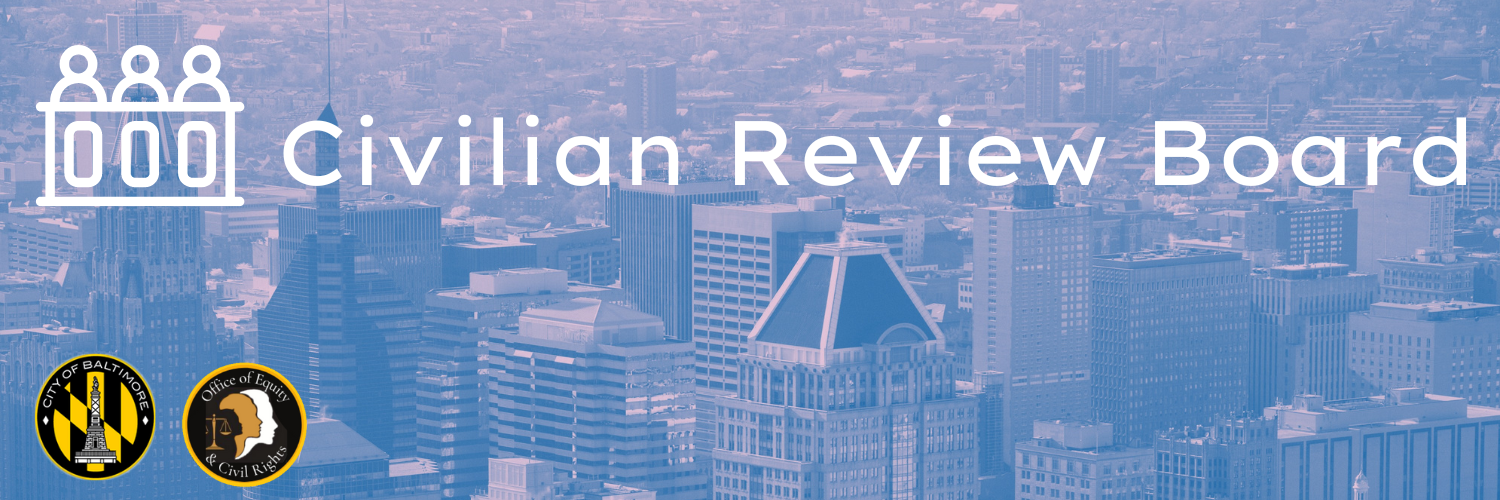Resources

Law
The Civilian Review Board was established by the state statute linked below.
Where to File a Complaint In Person
Allegation Definitions
Abusive language means harsh, violent, profane, or derogatory language which would demean the dignity of an individual. Abusive language includes profanity and racial, ethnic, or sexist slurs. The abusive language specifically includes the use of remarks to be demeaning, humiliating, mocking, insulting, or belittling, that may or may not be based on the actual or perceived race, color, religion, sex, national origin, sexual orientation, or gender identity of an individual.
Excessive force means the use of greater physical force than reasonably necessary to confront someone, arrest someone, repel an attack, or terminate resistance. Excessive force does not include force that is reasonably necessary to effect a lawful purpose.
False arrest is an arrest without legal justification.
False imprisonment is the intentional restriction without legal justification of the freedom of movement of a person who is aware of the restriction and who does not consent.
Harassment is repeated, unwarranted verbal or physical annoyances. Harassment is also unwarranted threats or unwarranted demands. Repeated or unwarranted conduct that is intended to be overtly demeaning, humiliating, mocking, insulting, or belittling is harassment. Any conduct that is intended to cause unnecessary physical discomfort or injury is harassment.
- If you feel that your rights have been violated or that you were treated unjustly by an officer of a law enforcement agency, you should file a complaint.
- It is important that you file your complaint as soon as possible so that the events are still fresh in your mind.
- In order for your complaint to be eligible for the CRB, you have one year from the date of the incident to file.
Police Complaint Mediation Program
The Civilian Review Board partners with Baltimore Community Mediation in order to mediate eligible complaints. The Mediation process offers a safe space for both parties to discuss and resolve the complaint and aims to rebuild police and community relations.
Mediation is:
- Voluntary
- Confidential
- Free
It is a participant-guided process. It helps the Resident and the Officer come to a resolution together. This helps to create understanding and improve the relationship
If you are interested in pursuing mediation for your complaint, please contact Mariel Shutinya via email by clicking here or by calling 443-286-9117.
Other Resources
Maryland Legal Aid - Maryland Legal Aid (MLA) provides life-changing civil legal assistance to eligible residents in every part of the State.
Baltimore City State's Attorney Public Trust and Police Integrity Unit - The primary function of the PTPIU is to independently investigate complaints of unnecessary or excessive force or any other act that may be corrupt or illegal.
The National Association for Civilian Oversight of Law Enforcement - NACOLE is a non-profit organization that works to enhance accountability and transparency in policing and build community trust through civilian oversight.
Public Justice Center - Founded in 1985, the Public Justice Center uses legal tools to challenge poverty and racial inequity in Maryland and beyond.
NAACP Baltimore City - The mission of the National Association for the Advancement of Colored People (NAACP) is to secure the political, educational, social, and economic equality of rights in order to eliminate race-based discrimination and ensure the health and well-being of all persons.
ACLU MD - ACLU of Maryland exists to empower Marylanders to exercise their rights so that the law values and uplifts their humanity.
Police Brutality Center - Police Brutality Center exists to bring awareness to the growing epidemic of police brutality, racial profiling, and excessive force.